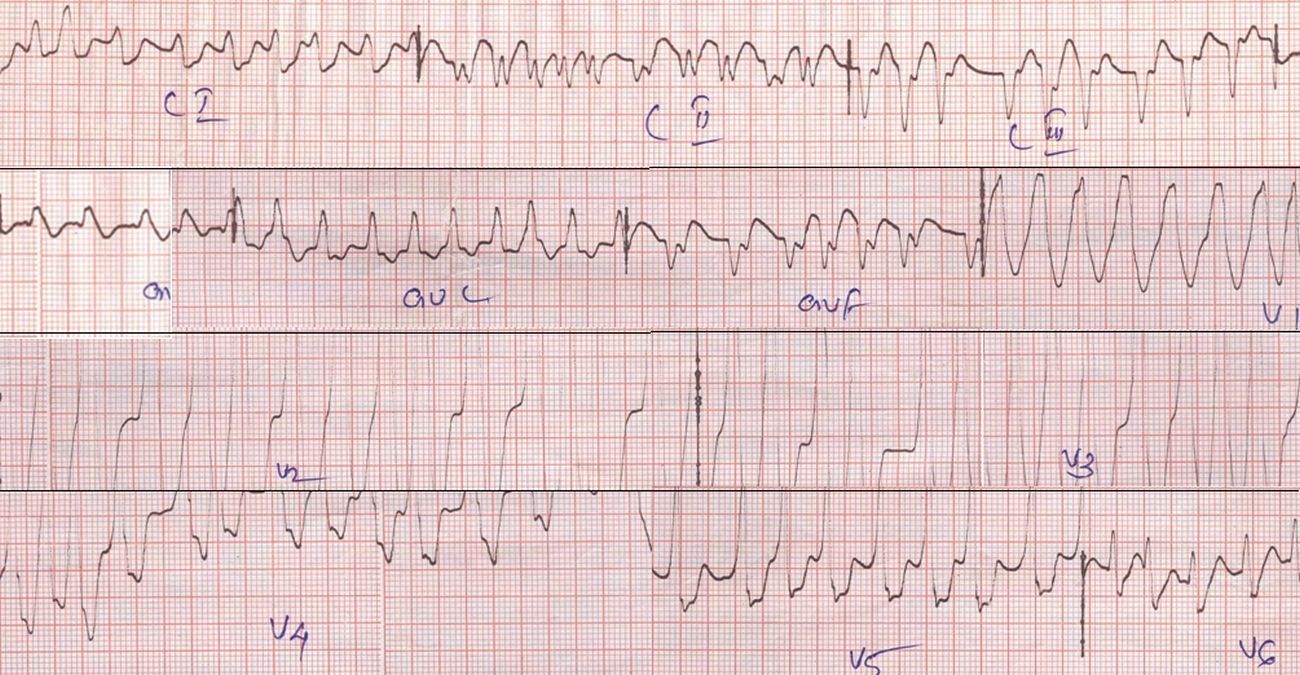Can atrial fibrillation with rapid ventricular response cause ventricular fibrillation?
Can atrial fibrillation with rapid ventricular response cause ventricular fibrillation?
Atrial fibrillation with rapid ventricular response can cause ventricular fibrillation when it is associated with an accessory pathway (WPW syndrome). In this situation, the ventricular rate is very high, of the order of 300 per minute because the impulse conducts down the normal pathway as well as the accessory pathway. Unlike the normal atrioventricular pathway, the refractory period of the accessory pathway decreases when larger number of impulses are transmitted. Accessory pathways with short refractory period can transmit impulses to the ventricle at a fast rate as the recovery of conductivity after each impulse is fast.
When the number of impulses are very high the ventricle cannot keep track for a long period and goes into ventricular fibrillation, unless the atrial fibrillation is treated promptly. Most often, atrial fibrillation with WPW syndrome is immediately cardioverted by DC shock on identification. This may be done even before the diagnosis of WPW syndrome is made because they may present with hypotension and wide QRS tachycardia due to the preexcitation.
 AF with WPW syndrome and fast ventricular rate
AF with WPW syndrome and fast ventricular rate
In addition to this possibility, patients with acute myocardial infarction and atrial fibrillation at presentation has a higher risk of ventricular fibrillation and mortality [1].
Reference
- Sankaranarayanan R, James MA, Nuta B, Townsend M, Kesavan S, Burtchaell S, Holloway R, Ewings P. Does atrial fibrillation beget ventricular fibrillation in patients with acute myocardial infarction? Pacing Clin Electrophysiol. 2008 Dec;31(12):1612-9.

